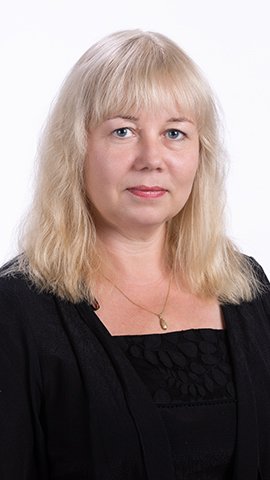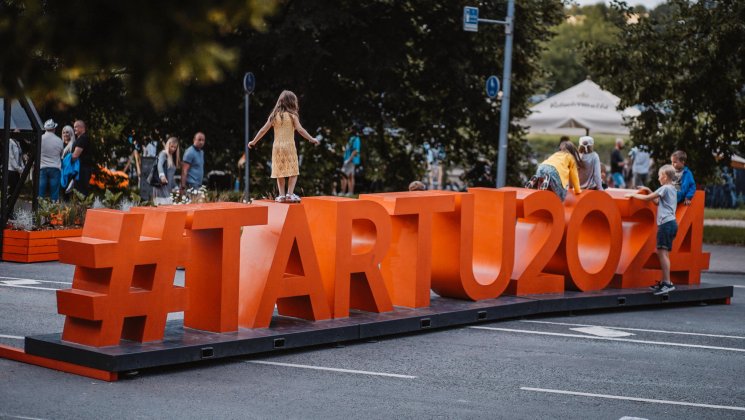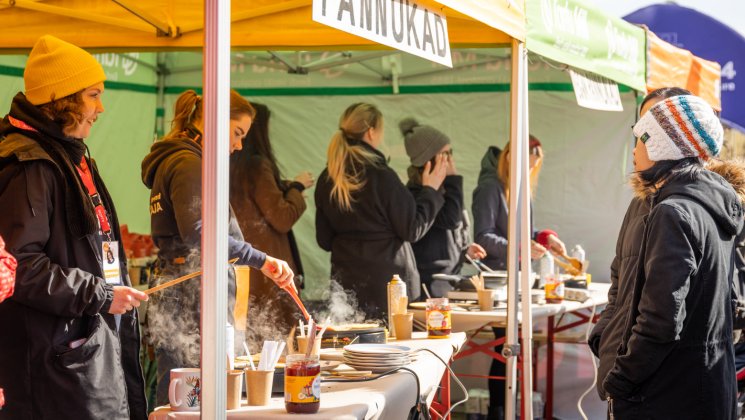-
Faculty of Arts and HumanitiesDean's Office, Faculty of Arts and HumanitiesJakobi 2, r 116-121 51005 Tartu linn, Tartu linn, Tartumaa EST0Institute of History and ArchaeologyJakobi 2 51005 Tartu linn, Tartu linn, Tartumaa EST0Institute of Estonian and General LinguisticsJakobi 2, IV korrus 51005 Tartu linn, Tartu linn, Tartumaa EST0Institute of Philosophy and SemioticsJakobi 2, III korrus, ruumid 302-337 51005 Tartu linn, Tartu linn, Tartumaa EST0Institute of Cultural ResearchÜlikooli 16 51003 Tartu linn, Tartu linn, Tartumaa EST0Institute of Foreign Languages and CulturesLossi 3 51003 Tartu linn, Tartu linn, Tartumaa EST0School of Theology and Religious StudiesÜlikooli 18 50090 Tartu linn, Tartu linn, Tartumaa EST0Viljandi Culture AcademyPosti 1 71004 Viljandi linn, Viljandimaa EST0Professors emeriti, Faculty of Arts and Humanities0Associate Professors emeriti, Faculty of Arts and Humanities0Faculty of Social SciencesDean's Office, Faculty of Social SciencesLossi 36 51003 Tartu linn, Tartu linn, Tartumaa EST0Institute of EducationJakobi 5 51005 Tartu linn, Tartu linn, Tartumaa EST0Johan Skytte Institute of Political StudiesLossi 36, ruum 301 51003 Tartu linn, Tartu linn, Tartumaa EST0School of Economics and Business AdministrationNarva mnt 18 51009 Tartu linn, Tartu linn, Tartumaa EST0Institute of PsychologyNäituse 2 50409 Tartu linn, Tartu linn, Tartumaa EST0School of LawNäituse 20 - 324 50409 Tartu linn, Tartu linn, Tartumaa EST0Institute of Social StudiesLossi 36 51003 Tartu linn, Tartu linn, Tartumaa EST0Narva CollegeRaekoja plats 2 20307 Narva linn, Ida-Virumaa EST0Pärnu CollegeRingi 35 80012 Pärnu linn, Pärnu linn, Pärnumaa EST0Professors emeriti, Faculty of Social Sciences0Associate Professors emeriti, Faculty of Social Sciences0Faculty of MedicineDean's Office, Faculty of MedicineRavila 19 50411 Tartu linn, Tartu linn, Tartumaa ESTInstitute of Biomedicine and Translational MedicineBiomeedikum, Ravila 19 50411 Tartu linn, Tartu linn, Tartumaa ESTInstitute of PharmacyNooruse 1 50411 Tartu linn, Tartu linn, Tartumaa ESTInstitute of DentistryL. Puusepa 1a 50406 Tartu linn, Tartu linn, Tartumaa ESTInstitute of Clinical MedicineL. Puusepa 8 50406 Tartu linn, Tartu linn, Tartumaa ESTInstitute of Family Medicine and Public HealthRavila 19 50411 Tartu linn, Tartu linn, Tartumaa ESTInstitute of Sport Sciences and PhysiotherapyUjula 4 51008 Tartu linn, Tartu linn, Tartumaa ESTProfessors emeriti, Faculty of Medicine0Associate Professors emeriti, Faculty of Medicine0Faculty of Science and TechnologyDean's Office, Faculty of Science and TechnologyVanemuise 46 - 208 51003 Tartu linn, Tartu linn, Tartumaa ESTInstitute of Computer ScienceNarva mnt 18 51009 Tartu linn, Tartu linn, Tartumaa ESTInstitute of GenomicsRiia 23b/2 51010 Tartu linn, Tartu linn, Tartumaa ESTEstonian Marine Institute0Institute of PhysicsInstitute of ChemistryRavila 14a 50411 Tartu linn, Tartu linn, Tartumaa EST0Institute of Mathematics and StatisticsNarva mnt 18 51009 Tartu linn, Tartu linn, Tartumaa EST0Institute of Molecular and Cell BiologyRiia 23, 23b - 134 51010 Tartu linn, Tartu linn, Tartumaa ESTTartu ObservatoryObservatooriumi 1 61602 Tõravere alevik, Nõo vald, Tartumaa EST0Institute of TechnologyNooruse 1 50411 Tartu linn, Tartu linn, Tartumaa ESTInstitute of Ecology and Earth SciencesJ. Liivi tn 2 50409 Tartu linn, Tartu linn, Tartumaa ESTProfessors emeriti, Faculty of Science and Technology0Associate Professors emeriti, Faculty of Science and Technology0Institute of BioengineeringArea of Academic SecretaryHuman Resources OfficeUppsala 6, Lossi 36 51003 Tartu linn, Tartu linn, Tartumaa EST0Area of Head of FinanceFinance Office0Area of Director of AdministrationInformation Technology Office0Administrative OfficeÜlikooli 17 (III korrus) 51005 Tartu linn, Tartu linn, Tartumaa EST0Estates Office0Marketing and Communication OfficeÜlikooli 18, ruumid 102, 104, 209, 210 50090 Tartu linn, Tartu linn, Tartumaa EST0Area of RectorRector's Strategy OfficeInternal Audit OfficeArea of Vice Rector for Academic AffairsOffice of Academic AffairsUniversity of Tartu Youth AcademyUppsala 10 51003 Tartu linn, Tartu linn, Tartumaa EST0Student Union OfficeÜlikooli 18b 51005 Tartu linn, Tartu linn, Tartumaa EST0Centre for Learning and TeachingArea of Vice Rector for ResearchUniversity of Tartu LibraryW. Struve 1 50091 Tartu linn, Tartu linn, Tartumaa EST0Grant OfficeArea of Vice Rector for DevelopmentCentre for Entrepreneurship and InnovationNarva mnt 18 51009 Tartu linn, Tartu linn, Tartumaa EST0University of Tartu Natural History Museum and Botanical GardenVanemuise 46 51003 Tartu linn, Tartu linn, Tartumaa EST0International Cooperation and Protocol Office0University of Tartu MuseumLossi 25 51003 Tartu linn, Tartu linn, Tartumaa EST0

RECORDING: Inclusive language policy and Estonian language learning are discussed and the university’s language award is presented on Mother Tongue Day

On 14 March at 13:00, all university members and language lovers are welcome to celebrate Estonia’s Mother Tongue Day in the university assembly hall. Presentations are made by Birute Klaas-Lang, Professor of Estonian as Foreign Language; Kerttu Rozenvalde, Research Fellow in Language Policy; and Tomáš Pavelka, programme director of the master’s curriculum “Wellness and Spa Service Design and Management”. The rector presents the University of Tartu language award to Virve-Anneli Vihman and her team. Watch the event live or view the recording on UTTV.
This year’s Mother Tongue Day focuses on Estonian language learning. Birute Klaas-Lang and Kerttu Rozenvalde make a presentation “How to achieve an inclusive language policy at the University of Tartu?” discussing the survey conducted at the university on the implementation of the language and internationalisation principles of the University of Tartu and the language attitudes of academic staff. “With these principles, the University of Tartu has set the goal to ensure the sustainability of the Estonian language while at the same time guaranteeing the inclusion of foreign-language-speaking staff in the university’s activities. Our study shows that the words in the vision document alone are not enough, and there is a need for investment in linguistic technology and Estonian language teaching, as well as activities that support using and valuing Estonian as the common language of communication,” said Klaas-Lang and Rozenvalde.
Tomáš Pavelka in his presentation “õäöü vs žščřďťň” speaks about his studies, the Estonian language, Estonians and life in general. “I think that Estonian is quite a learnable language. Still, that doesn’t mean I don’t make mistakes. Sometimes very simple words slip my mind, for example, pintsel,” said Pavelka.
Following each presentation, the audience can ask questions onsite or using Slido (code 1771996). All international staff and students are most welcome: machine-translated subtitles will be provided for all presentations in Estonian.
After the presentations, the rector will present the University of Tartu language award for 2022 and congratulate the recipients. The award is granted for teaching Estonian to Ukrainian war refugees with the help of volunteers. The University of Tartu linguists developed an Estonian language learning programme that meets Ukrainians’ needs. Student volunteers helped Ukrainian children learn Estonian and adapt to school, and also taught adults. The particular value of the programme designed for Ukrainians lies in the possibility of using it as a model for bringing learners and teachers together in similar situations.
The recipients are Associate Professor of Psycholinguistics Virve-Anneli Vihman and her team: Kairi Põldsaar, Senior Specialist in Geology, Programme Director for Geology and Environmental Technology; Mare Kitsnik, Associate Professor of Estonian as Foreign Language; Ada Urm, Junior Lecturer in Developmental and School Psychology; Denys Teptiuk, Research Fellow in Mordvin Languages, and Anna Branets, Senior Specialist for International Marketing, a doctoral student in Estonian and Finno-Ugric Linguistics.
On Mother Tongue Day, it is also possible to take part in several events that are held in Estonian. On 14 March at 10:25, Vikerraadio’s e-dictation begins. Note that it is possible to practise for it already. At 11, the conference “Tunnete keel ja tehnoloogia” (The language of feelings and technology) starts at the Estonian National Library. At 16, the language deeds of the year 2022 are announced at the Ministry of Education and Research. At 19, Mari Jürjens and Tõnis Mägi sing and speak in our beautiful language at the Estonian National Museum, accompanied by guitarists Ain Agan and Andre Maaker.
Estonia’s Mother Tongue Day in the University of Tartu
Read more similar news






